What is a heat pump and how does it work?
If you’re curious about efficient heating and cooling systems, you might be wondering what a heat pump is and how it works. Heat pumps are versatile devices used for both heating and cooling your home, making them an increasingly popular choice for energy efficiency.
A heat pump operates by transferring heat from one place to another. This process can occur in both directions, allowing the system to either heat or cool your home. The basic principle of a heat pump relies on the laws of thermodynamics, specifically the ability of refrigerants to absorb and release heat as they change states between liquid and gas.
How Heat Pumps Operate
Understanding how a heat pump functions can be broken down into four main components:
- Evaporator Coil: This is where the refrigerant absorbs heat from the external environment (air, ground, or water).
- Compressor: The heat-laden refrigerant gas is compressed, raising its temperature before it moves to the condenser coil.
- Condenser Coil: Here, the refrigerant releases its heat into your home’s atmosphere, warming the indoor space.
- Expansion Valve: This decreases the pressure of the refrigerant, allowing it to cool down before returning to the evaporator coil, completing the cycle.
In cooling mode, the system operates in reverse. The evaporator coil absorbs heat from the indoors, and the condenser releases it outside, keeping your home refreshingly cool during the warmer months.
Types of Heat Pumps
There are three primary types of heat pumps:
- Air Source Heat Pumps: These are the most common type, extracting heat from the outside air, even on cooler days.
- Ground Source (Geothermal) Heat Pumps: These systems draw heat from the ground. They are highly efficient, leveraging the stable temperatures below the earth’s surface.
- Water Source Heat Pumps: These utilize bodies of water, such as lakes or ponds, to heat or cool your home.
Benefits of Using a Heat Pump
Choosing to install a heat pump can offer numerous advantages:
- Energy Efficiency: Heat pumps consume less energy than traditional heating systems, leading to lower utility bills.
- Environmentally Friendly: They produce fewer greenhouse gas emissions compared to fossil fuel-based heating.
- Versatile Comfort: With the capability to both heat and cool, a heat pump can be a year-round climate control solution.
- Low Maintenance: Heat pumps generally require less maintenance than combustion-based systems.
Considerations When Installing a Heat Pump
While heat pumps have many benefits, it’s essential to consider a few factors before installation:
- Climate: In very cold climates, air source heat pumps may struggle to provide adequate heating alone.
- Installation Costs: The initial investment could be higher than traditional systems, but energy savings can offset these costs over time.
- Noise Levels: Some heat pumps can generate noise, although many modern models are designed for quieter operation.
A heat pump is a highly efficient, dual-purpose system for heating and cooling your home. By utilizing the principles of thermodynamics, these systems transfer heat wherever needed, providing comfort while being cost-effective and energy-efficient. If you’re considering sustainable home improvements, a heat pump may be a great option.
For more detailed information on heat pumps, you can visit Energy Star or check out HVAC.com for specific product reviews and recommendations.
The different types of heat pumps and their applications
Heat pumps are versatile systems that can provide both heating and cooling for residential and commercial spaces. Understanding the different types of heat pumps and their applications can help you make informed choices about energy efficiency and comfort. Below are the various types of heat pumps commonly used today:
Air Source Heat Pumps
Air source heat pumps extract heat from the outside air and transfer it inside during colder months. Conversely, they can also remove heat from indoor air during warmer months, thereby providing cooling. These pumps are popular due to their relatively low installation costs and ease of use. They are especially effective in temperate climates.
Applications:
- Residential heating and cooling
- Commercial buildings
- Water heating solutions
Ground Source (Geothermal) Heat Pumps
Ground source heat pumps, also known as geothermal heat pumps, utilize the stable temperatures found in the earth to provide heating and cooling. These systems consist of a network of underground pipes where fluid circulates, absorbing heat from the ground in winter and dissipating heat in summer. Although they have higher installation costs, they offer excellent energy efficiency and lower operating costs over time.
Applications:
- New construction projects
- Homes with large lots
- High-efficiency heating and cooling needs
Water Source Heat Pumps
Water source heat pumps use a body of water, such as a lake or pond, to gather or release heat. They work similarly to ground source systems but are often more efficient if a suitable water source is available nearby. These heat pumps are particularly effective in areas where temperatures can vary significantly.
Applications:
- Public swimming pools
- Fish farms
- Commercial buildings near water bodies
Ductless Mini-Split Heat Pumps
Ductless mini-split systems are an efficient way to heat or cool specific areas without using ductwork. They consist of an indoor unit and an outdoor condenser connected by a refrigerant line. They are ideal for homes without existing ductwork or for room additions where extending ducting may not be feasible.
Applications:
- Single-room applications
- Renovated spaces without existing ducts
- Supplemental heating or cooling for specific rooms
Hybrid Heat Pumps
Hybrid heat pumps combine a traditional heating system (like a furnace) with a heat pump. This type allows for optimal efficiency by automatically choosing the best energy source depending on the outdoor temperature. This adaptability makes them suitable for various climates.
Applications:
- Regions with extreme temperature variations
- Existing homes looking for upgrades
- Commitment to reduce energy costs
Choosing the Right Heat Pump
Selecting the appropriate type of heat pump depends on several factors, including:
- Your local climate
- The size of the space you want to heat or cool
- Your budget for installation and maintenance
- Your long-term energy savings goals
Whether you are a homeowner, a builder, or a business owner, understanding the different types of heat pumps can lead to more energy-efficient decisions.
For more information on heat pumps and their applications, you can visit resources like Energy Saver and HVAC.com. They offer a wealth of information tailored to both residential and commercial applications, helping you stay informed as you consider your heating and cooling options.
| Type of Heat Pump | Energy Source | Ideal Use Cases |
|---|---|---|
| Air Source | Air | Residential heating/cooling |
| Ground Source | Earth | High-efficiency buildings |
| Water Source | Water body | Commercial buildings |
| Ductless Mini-Split | Air | Specific room heating/cooling |
| Hybrid | Air/Fossil fuel | Regions with variable climates |
As you can see, there are many options available, each tailored for unique needs and applications. By doing some research and consulting with professionals, you can find the perfect heat pump to suit your lifestyle and energy efficiency goals.
Energy efficiency of heat pumps compared to traditional heating systems
When it comes to heating your home, energy efficiency is a crucial factor to consider. Heat pumps are increasingly becoming a popular choice compared to traditional heating systems like furnaces or electric heaters. This comparison is vital to understand how these systems respond to your energy needs while keeping costs low.
A heat pump operates by transferring heat rather than generating it. In the winter, it extracts heat from the outside air (even when it feels cold) and moves it indoors. During summer, the process reverses, providing cooling by moving heat from inside your home to the outside. This efficiency comes primarily from the fact that heat pumps use electricity to move heat rather than burning fuel to create heat. This fundamental difference allows heat pumps to achieve remarkable energy savings.
The energy performance of heat pumps is measured by their coefficient of performance (COP). The COP represents the amount of heat produced per unit of energy consumed. For instance, a heat pump with a COP of 3 can deliver three units of heat for every unit of electricity used. In contrast, traditional systems often operate at a much lower efficiency, typically below 1 for electric resistance heating methods and around 0.8 to 0.9 for gas furnaces.
| Heating System Type | Coefficient of Performance (COP) | Annual Energy Savings Potential |
|---|---|---|
| Heat Pump | 3.0 – 4.0 | Up to 50% compared to gas furnaces |
| Gas Furnace | 0.8 – 0.9 | N/A |
| Electric Resistance Heater | 1.0 | N/A |
One of the great benefits of heat pumps is their versatility in climate adaptation. They can efficiently heat your home in colder months while also providing cooling in the summertime. This dual capability can save you significant energy costs, as you won’t need separate systems for heating and cooling.
Moreover, heat pumps have become more effective in colder climates. Advanced models, known as cold climate heat pumps, work efficiently even in low exterior temperatures, making them suitable for a wider range of climates than in the past. These systems ensure that you can maintain comfort while still keeping energy costs lower than traditional heating methods.
For some homeowners, the initial investment for a heat pump may seem high. However, the long-term savings on energy bills can offset these costs significantly and typically yield a return on investment within just a few years. In various regions, government incentives and rebates are available to help with installation costs, making heat pumps an even more attractive option.
When comparing energy efficiency between heat pumps and traditional heating systems, you must consider not only the upfront costs but also the operational expenses over time. Here’s a brief overview of what you can anticipate:
- Lower Energy Bills: Heat pumps can cut your heating and cooling energy bills by up to 50%.
- Environmentally Friendly: By using electricity to transport heat rather than produce it, heat pumps have a smaller carbon footprint than traditional systems.
- Increased Comfort: With consistent temperature control and humidity management, heat pumps provide a more comfortable indoor environment.
Many homeowners have successfully transitioned to heat pumps and experienced not only lower energy bills but also improved comfort levels. According to Energy.gov, heat pumps can efficiently deliver heating and cooling, ensuring comfort throughout the changing seasons.
Ultimately, making the switch to a heat pump makes sense for many homes, especially when focusing on energy efficiency. As you consider options for heating and cooling, be sure to weigh the energy savings and advantages of heat pumps against the more traditional heating systems. You’ll find that the benefits can significantly enhance both your home comfort and your financial well-being.
Common misconceptions about heat pumps debunked
When it comes to heating and cooling your home, heat pumps are an increasingly popular choice. However, many people still hold misconceptions about how they work and what they can do. Let’s set the record straight on several common myths surrounding heat pumps.
Myth 1: Heat Pumps Are Only for Warmer Climates
One of the biggest misconceptions is that heat pumps only function effectively in warm areas. In reality, modern heat pumps are designed to work efficiently in a wide range of temperatures. While traditional systems may struggle in very cold weather, advanced cold-climate heat pumps can operate efficiently even in frigid conditions. This means you can benefit from the energy efficiency of heat pumps no matter where you live. For more information, check out Energy Saver.
Myth 2: Heat Pumps Are Expensive to Operate
Some people believe that heat pumps cost too much to run. However, this isn’t necessarily the case. Heat pumps are often more energy-efficient than traditional heating systems. They transfer heat rather than generate it, which means they can provide more energy than they consume. In fact, for every unit of electricity sourced, a heat pump can produce up to four units of heating or cooling. This can lead to significant savings on your energy bills over time.
Myth 3: Heat Pumps Don’t Provide Sufficient Heating
Another common fear is that heat pumps will not keep your home warm during winter. As mentioned earlier, advancements in technology have vastly improved heat pump performance in low temperatures. In fact, many homeowners find that heat pumps provide adequate heating without the need for supplementary heating systems. If you’re concerned about heating performance, look for models specifically rated for colder climates.
Myth 4: Heat Pumps Are Noisy
Many people worry that heat pumps will be too noisy. While older heat pump models may have been louder, today’s units are designed with noise reduction in mind. Many manufacturers incorporate quieter technology to minimize operational sounds. If noise is a concern for you, always check product specifications for sound ratings. Brands often showcase their quieter models, making it easier for you to find a solution that meets your preferences.
Myth 5: Heat Pumps Require a Lot of Maintenance
It’s a common belief that heat pumps need extensive maintenance. In fact, maintenance requirements for heat pumps are similar to those of conventional HVAC systems. Regular filter changes and annual professional servicing can keep your system running smoothly. Unlike traditional furnaces, which can have more complex maintenance needs, heat pumps generally require less frequent attention.
Myth 6: Heat Pumps Only Function Efficiently with Ductwork
Many homeowners assume that heat pumps must be connected to a duct system. However, there are ductless heat pump options available, known as mini-split systems. These systems allow for individualized climate control in different rooms without installed ductwork. This option is especially appealing for older homes where adding ducts may be cost-prohibitive or impractical.
| Myth | Reality |
|---|---|
| Only for warm climates | Works efficiently in cold climates too |
| Expensive to operate | Energy-efficient, often saves on bills |
| Not sufficient for heating | Can provide adequate warmth even in winter |
| Too noisy | Modern models designed for quiet operation |
| High maintenance | Similar maintenance to conventional systems |
| Only with ductwork | Ductless options available |
Understanding these misconceptions can help you make more informed decisions about heating and cooling your home. As you weigh your options, consider the many advantages heat pumps offer in terms of efficiency, versatility, and comfort. For further reading on heating options, check out Energy Star. By clearing up these myths, you can feel more confident in exploring heat pumps as an energy-saving option for your home.
Ultimately, you deserve a heating system that works efficiently and meets your needs, regardless of what you may have heard about heat pumps. Stay informed and trust the facts!
How to choose the right heat pump for your home
When selecting a heat pump for your home, understanding the various factors involved can make the difference between comfort and discomfort. A heat pump operates by transferring heat rather than generating it, making it an efficient option for heating and cooling. Here are some crucial elements to consider when choosing the right heat pump.
Type of Heat Pump
First, you need to decide what type of heat pump fits your home best. Here are the primary options:
- Air-source heat pumps: These are the most common and draw heat from the air. They work well in moderate climates.
- Ground-source (geothermal) heat pumps: These utilize the earth’s stable temperature to heat or cool your home. They are more efficient but come with a higher initial cost.
- Water-source heat pumps: Ideal for homes near a body of water, these pumps draw heat from the water. They require specific conditions to operate efficiently.
Size and Capacity
Choosing the right size is crucial for efficiency and comfort. An undersized heat pump will struggle to maintain your desired temperature, while an oversized unit may cycle on and off frequently, wasting energy. To determine the right capacity:
- Calculate the heating and cooling load of your home using the Manual J calculation method. This considers factors like size, insulation, and local climate.
- Consult with a professional HVAC contractor for a detailed load calculation if you’re unfamiliar with the process.
Energy Efficiency Ratings
Check the energy efficiency ratings, especially the SEER (Seasonal Energy Efficiency Ratio) for cooling and HSPF (Heating Seasonal Performance Factor) for heating. Higher numbers represent better efficiency:
| Efficiency Rating | Minimum Requirement | Recommended |
|---|---|---|
| SEER | 13 | 16 or higher |
| HSPF | 7.7 | 9 or higher |
Installation Considerations
Proper installation is key to enjoying the benefits of your heat pump. Look for certified contractors who have experience installing the type of heat pump you choose. Ask for references and read reviews before making a decision. Should you opt for a geothermal option, be aware that installation typically requires digging and other more invasive measures.
Climate and Location
Your geographical location significantly impacts which heat pump will work best. If you live in a warmer climate, an air-source heat pump may suffice. In colder areas, however, consider a dual-fuel system or a geothermal heat pump for better performance. Climate impacts not just efficiency but also the lifespan of the unit. For detailed information on choosing heat pumps based on climate, visit Energy Saver.
Budget and Operating Costs
Evaluate your budget. The initial purchase price is important, but so are the long-term operating costs. A more energy-efficient model may cost more upfront but will save you money on electricity bills over time. Be aware of local utility rebates and incentives for installing energy-efficient appliances, as these can help offset some of the initial costs.
Ongoing Maintenance
Regular maintenance is essential for extending the life of your heat pump and ensuring it operates efficiently. Schedule yearly maintenance checks to inspect filters, ducts, and the overall system. A good maintenance plan can save you money in repairs and energy costs in the long run. For maintenance tips and guidelines, check out this comprehensive resource at HVAC.com.
By considering these critical factors—type of heat pump, size and capacity, energy efficiency, installation, climate, budget, and maintenance—you can make a well-informed decision that ensures your home remains comfortable year-round. Doing thorough research and consulting with professionals will help ensure you select a heat pump that best meets your needs.
Installation considerations and costs associated with heat pumps
When considering the installation of a heat pump, there are several factors to take into account. Understanding the installation process and the associated costs will help you make informed decisions. Heat pumps are versatile systems that can efficiently heat and cool your home, but careful planning is essential for optimal performance and value.
Types of Heat Pumps
There are various types of heat pumps to choose from, each suitable for different environments and needs. Recognizing these options can influence your installation decisions.
- Air Source Heat Pumps: These extract heat from the air outside and transfer it indoors. They are generally more affordable to install than other types.
- Ground Source Heat Pumps: Also known as geothermal heat pumps, these harness heat from the ground. They can be more efficient but require extensive digging and installation work.
- Water Source Heat Pumps: These systems pull heat from water sources like lakes or wells if your property is near them. They can be highly efficient but come with unique installation considerations.
Installation Location
The location of your heat pump is crucial for maximizing its efficiency. Air source heat pumps should be placed outside with adequate clearance around them for airflow. Ground source heat pumps need proper site assessment, as digging deep holes is necessary. Ensure your chosen location allows for easy access for maintenance.
Size Matters
Choosing the right size of the heat pump is essential. A unit that is too small won’t heat or cool effectively, while a unit that is too large can waste energy and lead to higher costs. Consider having a professional perform a load calculation to determine the right size for your home.
Installation Costs
Installation costs can vary widely based on several factors. Here’s an overview of what you might expect:
| Type of Heat Pump | Average Installation Cost |
|---|---|
| Air Source Heat Pump | $3,500 – $7,500 |
| Ground Source Heat Pump | $10,000 – $30,000 |
| Water Source Heat Pump | $6,000 – $15,000 |
These prices can fluctuate based on local labor costs, the system’s size, and the specific features you select, so it’s wise to get multiple quotes from reputable contractors.
Incentives and Rebates
Many government programs offer incentives for heat pump installations to promote energy efficiency. Research local and state programs that might provide rebates or tax credits to help offset installation costs. For more details on available rebates, visit DSIRE.
Permits and Regulations
Before installation, check if you need any permits. Local regulations might require you to obtain permits before installation. Additionally, it is crucial to ensure that your contractor complies with all local building codes. This attention to detail can save you from future legal issues or necessary modifications.
Maintenance Considerations
Installing a heat pump is only the beginning. Regular maintenance is vital to keep your system efficient and prolong its lifespan. Be prepared for periodic checks and cleaning to avoid dirt build-up, which can hinder performance. Establishing a maintenance plan with your installer can ensure that your system operates optimally.
Working with Professionals
Hiring trained professionals for your heat pump installation is vital. They can provide tailored advice based on your home’s needs and ensure everything is installed correctly. A trusted installer will also help explain the operation and upkeep of your new system.
Installing a heat pump involves careful consideration of the type, location, size, and costs associated with the unit. By being informed and proactive about these elements, you can achieve a successful installation that will enhance your home’s comfort and energy efficiency.
For further information and expert assistance, check resources like NREL or consult with local HVAC specialists who can guide you through the process.
Maintenance tips for ensuring the longevity of your heat pump
Maintaining your heat pump is essential for ensuring it operates efficiently and lasts for many years. Regular upkeep not only extends the lifespan of your system but also saves you money on energy bills and repairs. Below are several maintenance tips to help you care for your heat pump successfully.
Regular Filter Replacement
One of the simplest yet most effective maintenance tasks is to check and replace the air filters regularly. Dirty filters can restrict airflow, making your heat pump work harder than necessary. Ideally, you should replace or clean your filters every one to three months, depending on your usage. Follow these steps:
- Turn off the heat pump unit.
- Locate the air filter; it’s usually near the return air duct.
- Remove the filter and inspect it. A heavily soiled filter needs replacement.
- Insert a new filter or clean the old one if it’s washable.
Maintain the Outdoor Unit
For heat pumps that have an outdoor component, maintaining its cleanliness is vital. You can extend its life by adopting these practices:
- Clear debris such as leaves, dirt, and snow that may pile up around the unit.
- Ensure the outdoor unit has a minimum clearance space of two feet in all directions.
- Gently rinse the unit with a garden hose to remove dust and grime. Avoid high-pressure washers.
Inspect and Clean the Coils
The evaporator and condenser coils of your heat pump play a significant role in its efficiency. Over time, these coils can accumulate dirt and debris, leading to inefficiencies.
- Inspect coils at least annually.
- Use a soft brush or cloth to clean them gently.
- Consider using a professional service for a thorough cleaning.
Check the Insulation
Poor insulation can lead to heat loss and drive up your energy costs. Ensure that the space around your ducts and pipes is well insulated to maximize efficiency. Pay attention to areas like:
- Basements
- Attics
- Outside walls
Schedule Professional Inspections
While some maintenance tasks can be done by homeowners, scheduling routine professional inspections is crucial. An HVAC technician can offer a detailed inspection, including checking:
- Refrigerant levels
- Electrical connections
- Compressor function
These professional visits ensure that any potential issues are caught early. It’s generally recommended to schedule this at least once a year, ideally before heating or cooling seasons begin.
Monitor the Thermostat
Your thermostat controls the heat pump’s operation. Regular monitoring can help you spot problems early. Consider the following:
- Ensure the thermostat is set at the appropriate temperature.
- Check for discrepancies between the set temperature and room temperature.
- Consider upgrading to a smart thermostat for better control and efficiency.
Keep Ducts Clean
Dirty ducts can significantly affect airflow and indoor air quality. It’s a good idea to inspect your ducts regularly. Scheduling a professional cleaning every three to five years can prevent significant buildup and enhance efficiency.
Common Signs of Trouble
Be vigilant for any signs that your heat pump may require immediate attention:
- Strange noises from the system.
- Inconsistent heating or cooling.
- Higher energy bills without an increase in usage.
Addressing these issues swiftly can save you money in the long run.
For more detailed information on heat pump maintenance, you can explore resources like Energy.gov and HVAC.com.
Caring for your heat pump with regular maintenance checks and timely interventions is key to enjoying its benefits without interruptions. By following the above guidelines, you will help ensure your heat pump remains efficient, effective, and long-lasting.
Key Takeaway:
Key Takeaway: Understanding Heat Pumps and Their Benefits
A heat pump is a highly efficient heating and cooling system that transfers thermal energy between indoor and outdoor environments. Unlike traditional heating systems that create heat by burning fuel, heat pumps move heat from one place to another, making them exceptionally energy-efficient. This article elaborates on several crucial aspects of heat pumps, helping you make informed decisions regarding their use in your home.
There are various types of heat pumps, including air-source, ground-source (geothermal), and water-source systems, each suitable for different applications. Air-source heat pumps are commonly used in residential settings, while geothermal units are ideal for larger properties where ground conditions allow for installation. Understanding these distinctions is important for selecting the right system for your needs.
When comparing energy efficiency, heat pumps generally outperform traditional heating systems, leading to lower energy bills and a smaller carbon footprint. By using renewable energy sources, heat pumps can yield significant savings in energy consumption, thereby promoting environmental sustainability.
Many misconceptions about heat pumps persist, such as their effectiveness in extremely cold temperatures. Modern heat pumps are designed to operate efficiently even in freezing conditions, debunking the myth of their ineffectiveness in cold climates. Understanding the technological advancements in heat pump design is essential to dispel these inaccuracies.
Choosing the right heat pump for your home involves considering factors like size, efficiency ratings, and specific heating or cooling requirements. Engaging a professional can help you navigate these choices, ensuring that you maximize efficiency and comfort in your home.
Installation costs can vary widely based on the type of heat pump and existing infrastructure. Factors like ductwork and local climate can affect overall costs, so it’s wise to obtain multiple quotes before proceeding with a installation.
To ensure the longevity of your heat pump, routine maintenance is critical. Regular inspections, cleaning of filters, and proper system tuning can help avoid costly repairs and prolong the life of your unit.
Understanding what a heat pump is and how it operates, along with making informed decisions about type, installation, and maintenance can lead to energy savings, comfort, and environmental benefits. Whether you are thinking about upgrading your heating system or simply researching your options, heat pumps offer many advantages worth considering.
Conclusion
Understanding what a heat pump is and how it works opens up a world of possibilities for efficient home heating and cooling. These versatile systems come in various types, each suited for specific applications, from air-source to ground-source systems. You can significantly lower your energy bills and reduce your carbon footprint by choosing a heat pump over traditional heating systems.
Common misconceptions about heat pumps can lead to hesitation in their adoption, but once these myths are debunked, the benefits become clear. Selecting the right heat pump involves considering factors like the size of your home, your climate, and your specific heating and cooling needs. Installation costs can vary, but it’s essential to factor in long-term savings through energy efficiency.
After installation, proper maintenance is crucial for maximizing your heat pump’s lifespan and effectiveness. Simple tips, like regular filter changes and scheduled professional inspections, can go a long way in ensuring your system runs smoothly.
Heat pumps are a smart choice for homeowners looking to enhance their comfort while being mindful of energy consumption. By understanding their operation, energy efficiency, and maintenance needs, you can make an informed decision that benefits both your home and the environment. Embracing this technology not only elevates your living experience but also contributes positively to sustainable energy practices.
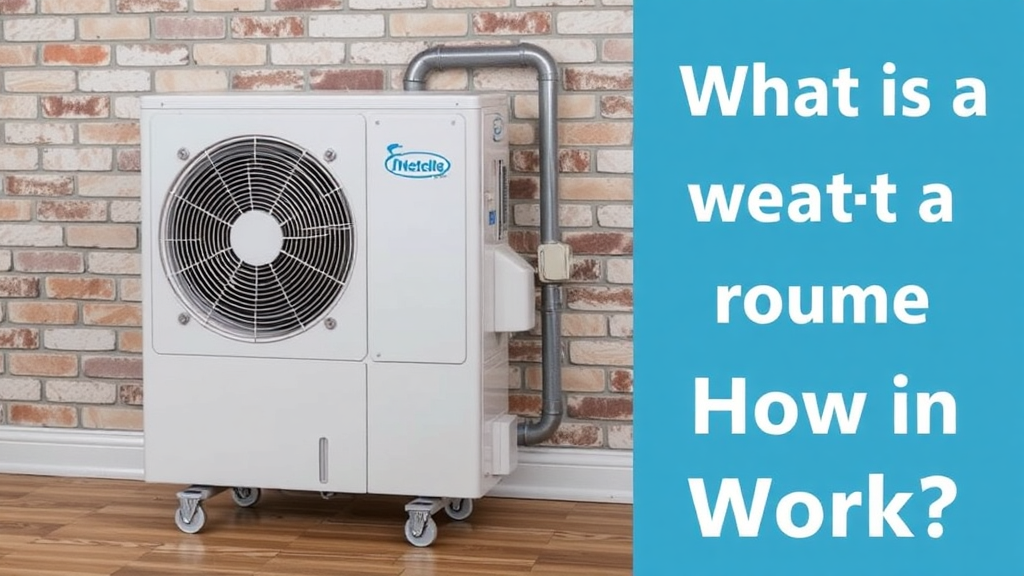
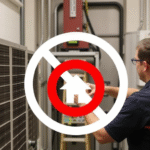
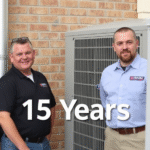
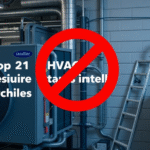
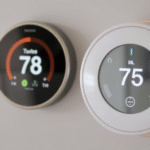
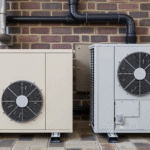
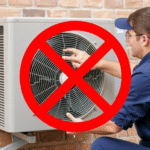
Leave a Reply